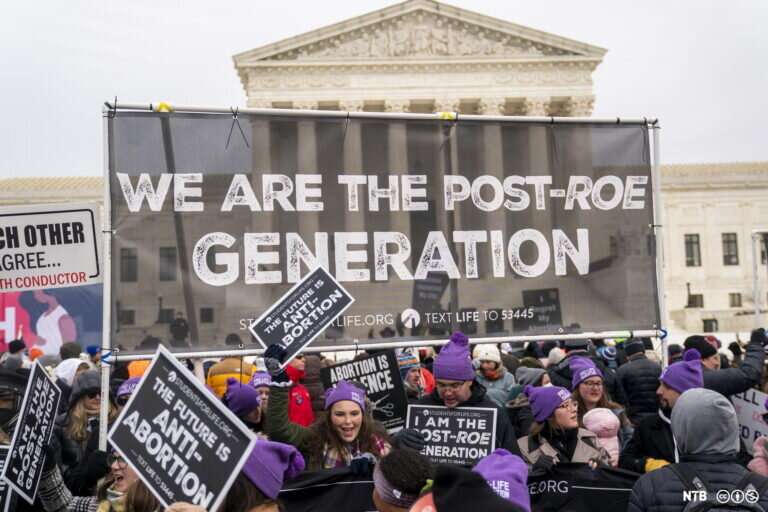Expert analysis: One year after Dobbs decision, restrictive abortion laws part of a ‘willful policy vacuum’

As the one-year anniversary passes on the Supreme Court decision to overturn Roe v. Wade—and with it the constitutional right to an abortion—University of Michigan public policy professor Paula Lantz offers insights on the ramifications of that ruling and where things might be headed in the months ahead.
Effects go beyond restricting reproductive choice
A year after the decision in Dobbs v. Jackson Women’s Health Organization, abortion is either completely banned or severely restricted in almost half of U.S. states. While court challenges and legislative debates play out, we already know that state-level policies are not only restricting reproductive choices but also the practice of evidence-based medicine.
Obstetricians and gynecologists are reporting serious concerns about their ability to treat and manage ectopic pregnancies, miscarriage and other medical situations related to reproductive health. There are already many strong signals these policies are reducing the number of obstetricians, gynecologists and other clinicians who want to train and practice in these states, which could lead to a significant brain drain of an essential component of the health care workforce.
This will harm health care and health outcomes for everyone.
New policies do nothing to strengthen social safety net
In addition, while it is too early to have much data on the impact of new abortion policies on families and children, we know from a lot of prior research that restricting abortion has a negative impact on the socioeconomic welfare of families. Half of those who seek abortion care in the U.S. are already living below the poverty level and 60% already have at least one child.
Restrictive abortion policies are predicted to increase the number of children living in poverty and the number of families with significant economic hardship and social welfare problems. While we wait for new data to emerge, one thing we do know is that the state legislators passing restrictive abortion laws are neglecting to also enact policy that would expand access to family planning services and strengthen the social welfare system and safety net programs related to housing, economic security, food and health care.
A year after the Dobbs decision, we see abortion legislation in a willful policy vacuum that is doing nothing to prevent unintended pregnancy or to ensure that the additional children born into struggling families will have the opportunity to thrive physically, economically and socially.
Citation:
Expert analysis: One year after Dobbs decision, restrictive abortion laws part of a ‘willful policy vacuum’ (2023, June 27)
retrieved 27 June 2023
from https://phys.org/news/2023-06-expert-analysis-year-dobbs-decision.html
This document is subject to copyright. Apart from any fair dealing for the purpose of private study or research, no
part may be reproduced without the written permission. The content is provided for information purposes only.
For all the latest Science News Click Here
For the latest news and updates, follow us on Google News.

